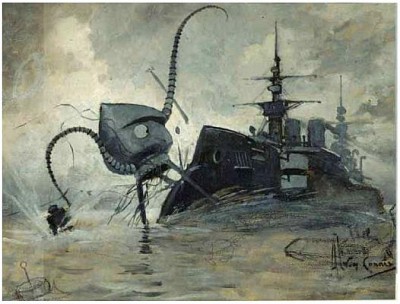Very interesting Atlantic article this week: “Why Sci-Fi Keeps Imagining the Subjugation of White People”
A researcher doing a meta-analysis of science fiction found its initial rise to prominence and formation as a coherent genre is tied directly to the height of imperial Britain and colonial France, both in time and place. Jules Verne, H.G. Wells, and so on.
(And though it wasn’t mentioned in the piece, American sci-fi like A Princess of Mars/John Carter of Mars, a serialized allegory about the American Civil War, rose to prominence just a little later as America became a global power, between the Spanish-American War and U.S. entry into World War I.)
After its origins in imperial Britain and colonial France, the genre’s allegory has broadly bifurcated into “we’ll get what was coming to us for the horrors of colonial oppression” versus “man, this is awesome — we should keep killing everyone who doesn’t look like us because we’re the best, and if we don’t, we’ll be oppressed, and white people don’t deserve that.”
As for myself, I find my tastes distinctly in the former camp. Box office bomb aside, I refused to watch Disney’s “John Carter” on principle, because the original story is an obvious allegorical paean to the Confederacy and antebellum South through the lens of a race war between aliens on another planet. The antebellum South, of course, being the height of America’s internal white supremacist colonialism.
Also my tastes tend that way just because I’m totally the type of person who would try to surrender the entire planet to an invading alien military, instead of trying to re-enact “Independence Day.” Maybe that makes me the Marshal Philippe Pétain of our planetary future, but I just assume that if a huge landing force of aliens arrives at Earth while we’re still sending people to our dinky “space” station (which is actually still in our atmosphere) on barely-upgraded-from-the-Soviet-era spaceships, we’ve probably already lost that conflict. Better to surrender quickly and wage a guerrilla resistance to wear the occupiers down — what we humans do best — than try to fight off the initial invasion and lose everything. Or, failing that, we’ll just get what’s coming to us.

Illustration: “Martians vs. Thunder Child” from a 1906 printing of “The War of the Worlds” by H.G. Wells.





